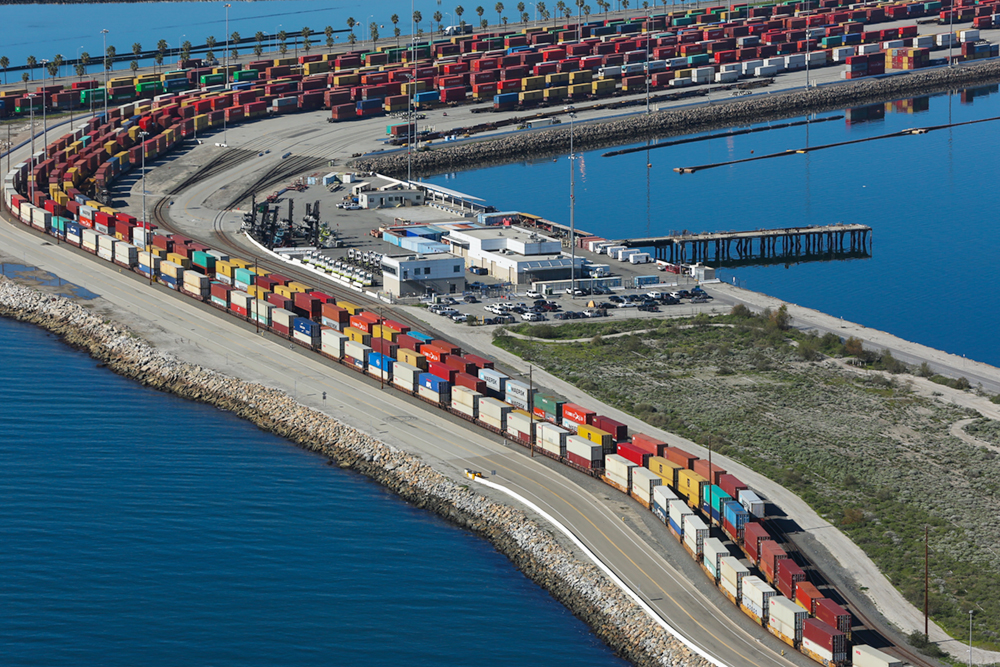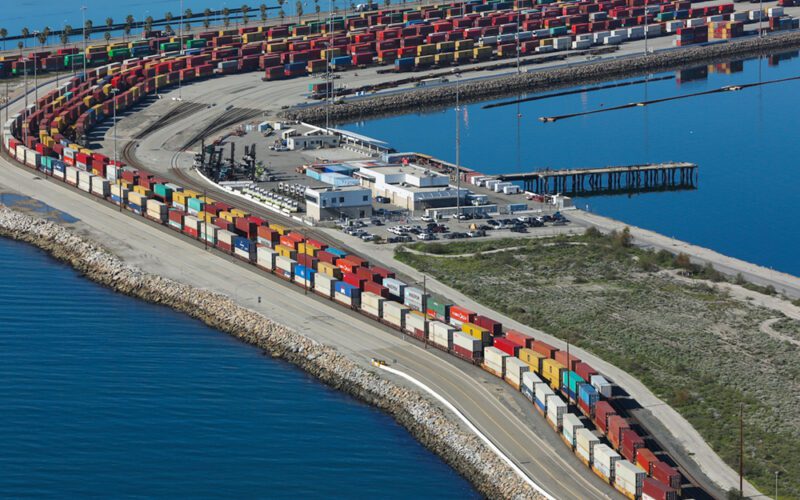
The number of containers that lingered at terminals at the ports of Long Beach and Los Angeles before leaving by rail reached a new high last month, according to new data released Aug. 22, by the Pacific Merchant Shipping Association.
The average dwell time for rail-bound cargo at the twin ports last month was 16.4 days, up 3.1 days from June’s 13.3 days and up 5.1 days from May (11.3 days).
Last month’s 16.4-day dwell time average was the highest recorded by PMSA since it started tracking the data more than a year ago.
Meanwhile, the average dwell time for truck-bound containers at Long Beach and Los Angeles was 5.62 days, up slightly from the 5.5-day average from the previous month, PMSA data show.
“High dwell time affects the efficiency of multiple supply chain partners,” PMSA government affairs manager Jessica Alvarenga said. “Old containers take up space on the terminals, making it difficult to unload vessels faster, it takes longer to get to a specific container and put it on a truck if it is under a pile of old containers, which then also delays the time it takes to get truckers out on their way.”
Officials from both ports have been working to curb the growing stacks of containers at their terminals. In October, the ports announced a “container dwell fee” that would charge ocean carriers for imports lingering past their allotted time.
Aug. 26 was the new tentative start date for collecting on the fee, which charges ocean carriers $100 for every import that stays at terminals nine or more days. The fee rises in $100 increments per import per day until the container is gone.
The fee is in place at least until Oct. 26.

